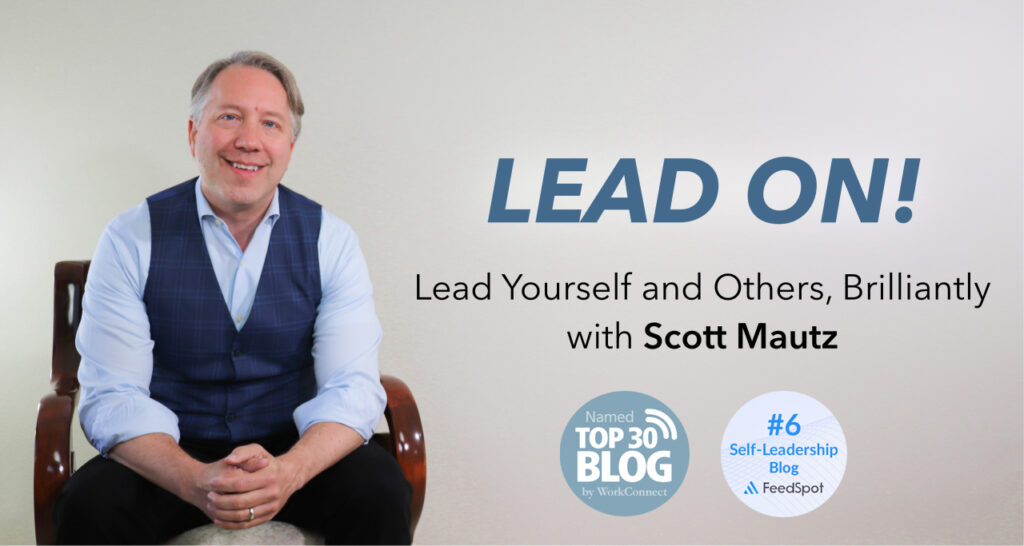
INSIGHTS (on leadership/self-leadership)
In my brand new book (publication day was yesterday May 7th!), The Mentally Strong Leader, I share a powerful way to drive accountability in your team/organization. Here, I focus on self-accountability, with a story exclusive to LEAD ON! readers:
CEO of the Toronto Blue Jays professional baseball team, Mark Shapiro, (and a man played by actor Reed Hastings in the film, Moneyball), told me in an interview of an unlikely encounter. Mark was at a friend’s wedding. The friend happened to be marrying the daughter of professional football coaching legend Bill Parcells. Shapiro and Parcells were engaged in chit-chat at one point early in the festivities and Mark was lamenting the number of player injuries he was dealing with and the aging playing roster he faced (as, at the time, GM of the Cleveland Indians). Parcells interrupted Mark’s diatribe, looked him in the eye, and gave Mark Shapiro the best advice he ever got.
“Mark, nobody gives a sh#!”
Parcells repeated the wisdom to Shapiro again at the wedding reception, and a third time, later, where it really sunk in, at the men’s room urinals. Shapiro has never forgotten that leaders must lead, that there must be unswerving accountability, and that there are no excuses.
And the troops are watching.
IMPERFECTIONS (a mistake many make)
Imagine that you’ve been granted the strange but wonderful power to see the exchange of energy between life forces all around you, visible to no one but you. As such, you’re sitting in the airport watching as two old friends trade broad smiles and waves upon spotting one another – one from the waiting area, the other approaching while eagerly pulling a rolling suitcase behind. Each of the two are bathed in a soft blue hue that only you can see – their personal, core energy – the energy we all start with, and would be limited to were we to live a life of solitude.
As they draw closer, hold eye contact, and make more animated gestures to one another, you notice orange tendrils of energy begin to emit forth from each of them, reaching out to the other in long, graceful, winding cords. Each of their individual blue hues is now becoming tinged with warmer orange tones. By the time they embrace each other in a “So glad to see you!” hug, their sheen is now completely bright orange. Their energy has completed a transition, at least for the time being, not unlike the blue to orange transformation a flame makes shortly after its birth.
You’ve just witnessed the power of human connection – its end product the transformation of pale blue to vivid orange – an upgraded emission of brightness and warmth. I believe such energy exchanges really do happen in this world, even if not to the naked eye.
And when you make the understandable mistake of becoming disconnected from those in your life that matter to you (because you’re too busy, out of sight/out of mind, so much going on, etc. etc.), you deny yourself the exchange of the crackling orange tendrils of energy you draw from such connections. And so, you never fully ignite and burn your brightest; your personal energy can only accomplish so much, as formidable as it might be.
Well, here’s the thing about being disconnected, from anything, a co-worker, an old friend, a phone call, or a conga line:

IMPLEMENTATION (one research-backed strategy, tip, or tool)
Author of The Power of Regret, Dan Pink (an endorser of The Mentally Strong Leader!) shares a simple but powerful strategy for recasting actions you’ve taken in the past – to avoid regret.
You “At Least” it.
An example. Say in the past you said something to someone that you regret. To ease the sting, you find an “At least,” like, “At least I learned how painful it is when I’m not careful what I say – so I’ll be less likely to lash out again.”
The point is, “at leasts” can turn regret into relief. So, be intentional about doing so, because “at leasts” spring to mind far less often than “If Only’s…” In fact, as author Pink says:
“‘At leasts’ work like antibiotics. Sometimes we need to reach into the medicine cabinet and pop a few of them to fortify our psychological immune system and fight off certain harmful emotions. If we use these antibiotics too often, their efficacy will wane. If we use them intelligently, they can aid in healthy functioning.”




Leave a Reply